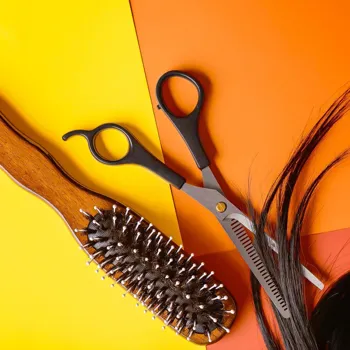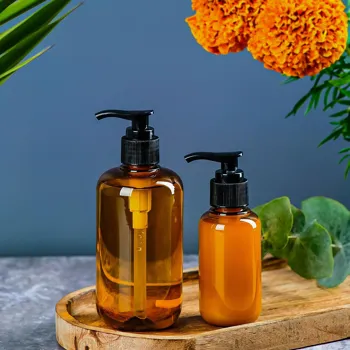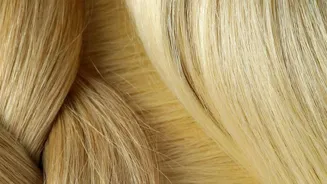Unveiling 5 Haircare Myths You Still Believe - discover the truth behind maintaining healthy, beautiful hair! Read on for insights
We Indians love our hair, don't we? Long, short, curly, straight – we take
pride in our manes. From grandma's age-old remedies to the latest Instagram trends, we’re always looking for ways to keep our hair healthy and shiny.
But with so much information floating around, it's easy to fall for common haircare myths. These myths, passed down through generations or amplified by the internet, can sometimes do more harm than good. Let's bust some of these myths and uncover the truth behind achieving healthy, beautiful hair.
It is very important to follow some basic rules to keep the hair healthier and shiny.
Regular trims maintain hair health, not growth
This is a classic! How many times have you heard that regular trims are the secret to Rapunzel-like locks? The truth is, trimming your hair doesn't affect growth at the roots, which is where growth actually happens. Hair grows from the follicles in your scalp.

Trimming only removes split ends and damaged hair. What it does do is prevent split ends from traveling up the hair shaft, which can lead to breakage and the need for a more drastic haircut later.
So, while trimming won't make your hair grow faster, it will keep it healthier and prevent it from looking thin and damaged at the ends. Think of it like this: trimming is like pruning a plant.
It doesn't make the plant grow faster, but it does encourage healthier growth by removing dead or damaged parts.
Excessive shampooing can harm hair by stripping natural oils
For many of us, especially in humid Indian weather, the urge to shampoo daily is strong. But excessive shampooing can actually strip your hair of its natural oils, leaving it dry, brittle, and prone to breakage. Our scalp produces sebum, a natural oil that keeps our hair moisturized and protected.

Washing too frequently removes this protective layer. The ideal frequency of shampooing depends on your hair type and lifestyle. If you have oily hair or exercise regularly, you might need to shampoo more often.
However, if you have dry or chemically treated hair, you can probably get away with shampooing every other day or even less frequently. Consider using a dry shampoo in between washes to absorb excess oil and refresh your hair.
Brush hair gently for shine, avoid over-brushing to prevent damage
Ah, the age-old myth of the hundred brush strokes! The idea behind this was that brushing distributes the scalp's natural oils down the hair shaft, leading to shinier hair.
While brushing does help distribute oils, excessive brushing can actually damage your hair, especially if you're using the wrong type of brush or brushing too vigorously. Over-brushing can lead to breakage, split ends, and even hair loss.
A better approach is to brush your hair gently, using a wide-toothed comb or a brush with soft bristles, just enough to detangle it and distribute the oils. Focus on being gentle and avoiding any pulling or tugging. The type of brush you use also matters.
A wide-toothed comb is great for detangling wet hair, while a boar bristle brush can help distribute oils and add shine to dry hair.
Natural vs. synthetic haircare: effectiveness varies, choose wisely
Natural" is a buzzword these days, and many believe that natural haircare products are automatically superior to those containing synthetic ingredients. However, this isn't always the case.
While natural ingredients can be beneficial, they're not always more effective or safer than their synthetic counterparts. The effectiveness of a product depends on the specific ingredients and how they're formulated. Some natural ingredients can even be irritating or allergenic for some people.
For example, essential oils, while beneficial in some cases, can cause allergic reactions in sensitive individuals.
The key is to do your research and choose products that are formulated with ingredients that are suitable for your hair type and needs, regardless of whether they're natural or synthetic. Read labels carefully and look for products that are free of harsh chemicals like sulfates and parabens.
Stress doesn't cause gray hair, genetics and age do. Stress may worsen hair aging
While extreme stress can indeed affect your hair health, leading to temporary hair loss or changes in hair texture, it doesn't directly cause your hair to turn gray. Gray hair is primarily determined by genetics and age.
As we age, the melanocytes, which are the cells responsible for producing pigment in our hair follicles, gradually decrease their production. This leads to a reduction in melanin, which in turn causes hair to turn gray, silver, or white.
While stress might not directly cause gray hair, it can exacerbate other factors that contribute to hair aging. For example, stress can lead to poor diet and sleep habits, which can indirectly impact hair health.
Focus on managing stress through healthy lifestyle choices like exercise, meditation, and spending time with loved ones.
Navigate haircare myths for healthy, beautiful hair
In conclusion, navigating the world of haircare can be tricky with so many myths and misconceptions floating around. By understanding the truth behind these common myths, you can make informed decisions about your haircare routine and achieve healthy, beautiful hair that you'll be proud to flaunt!
Remember to consider your hair type, consult with a dermatologist or hair stylist if needed, and always prioritize gentle and nourishing practices over harsh or trendy treatments. After all, healthy hair is happy hair!
















